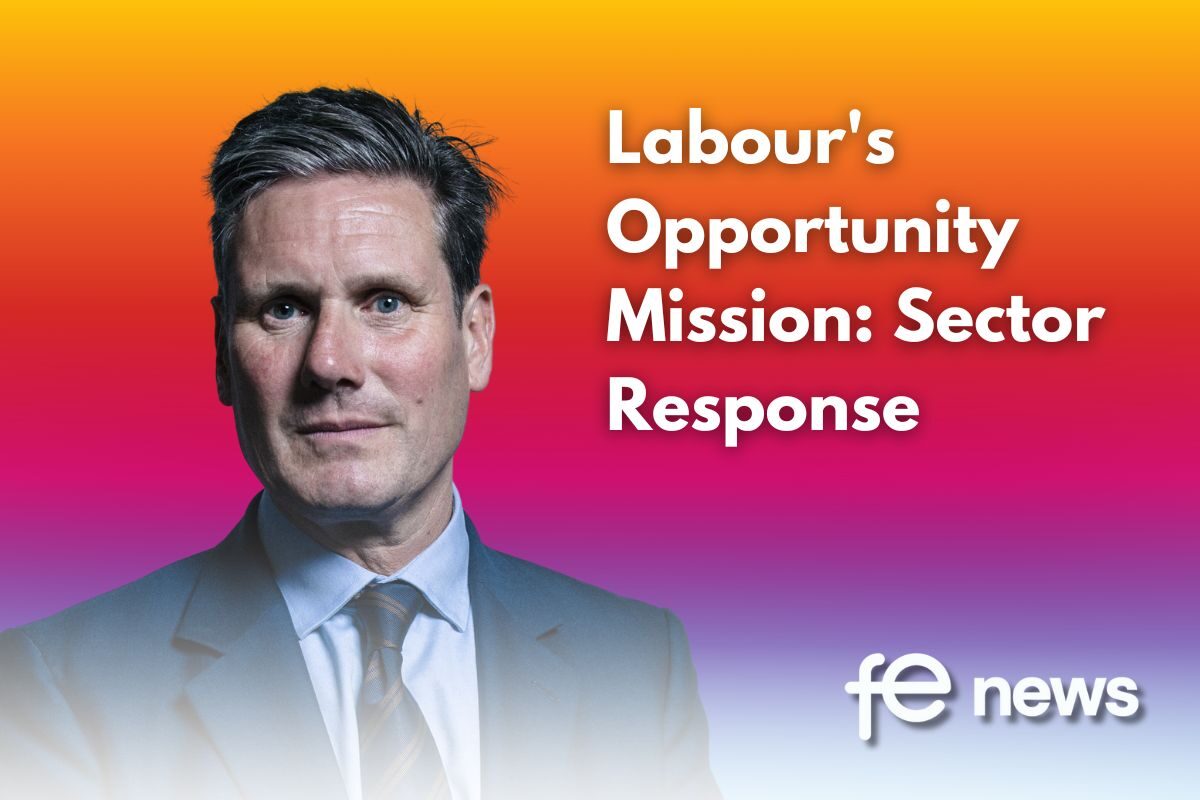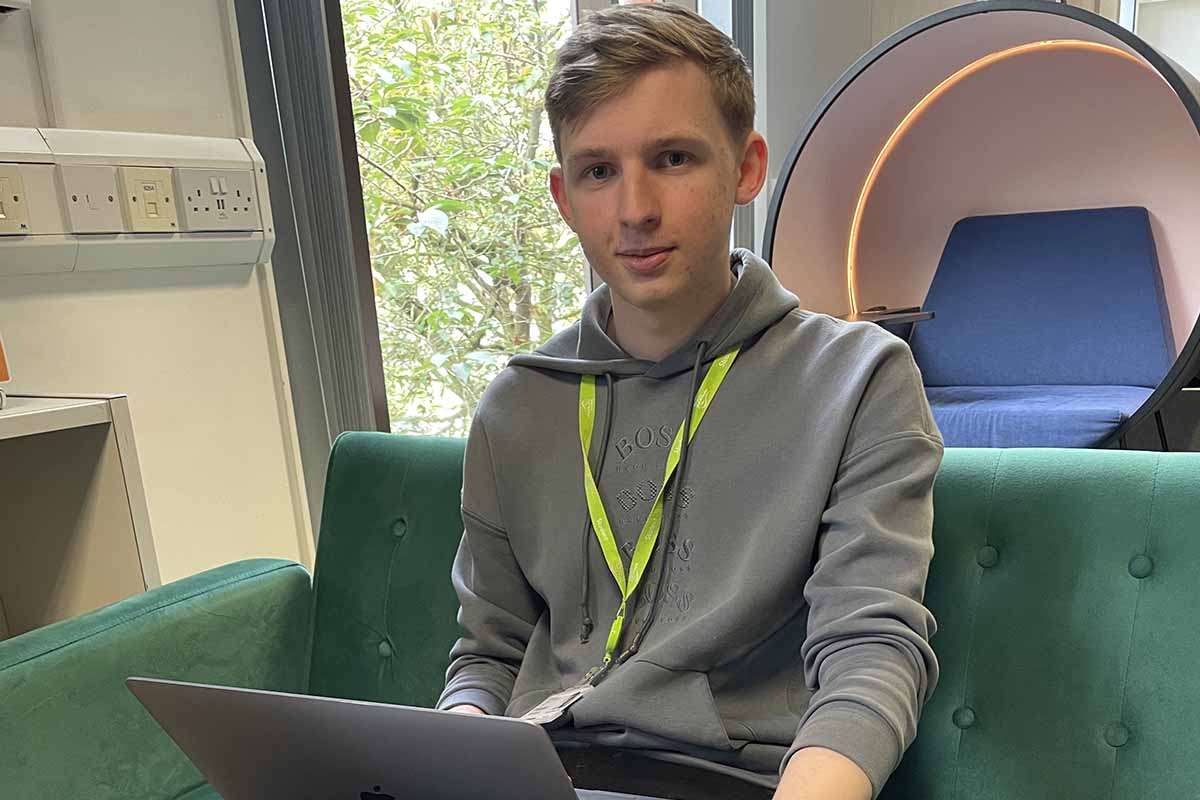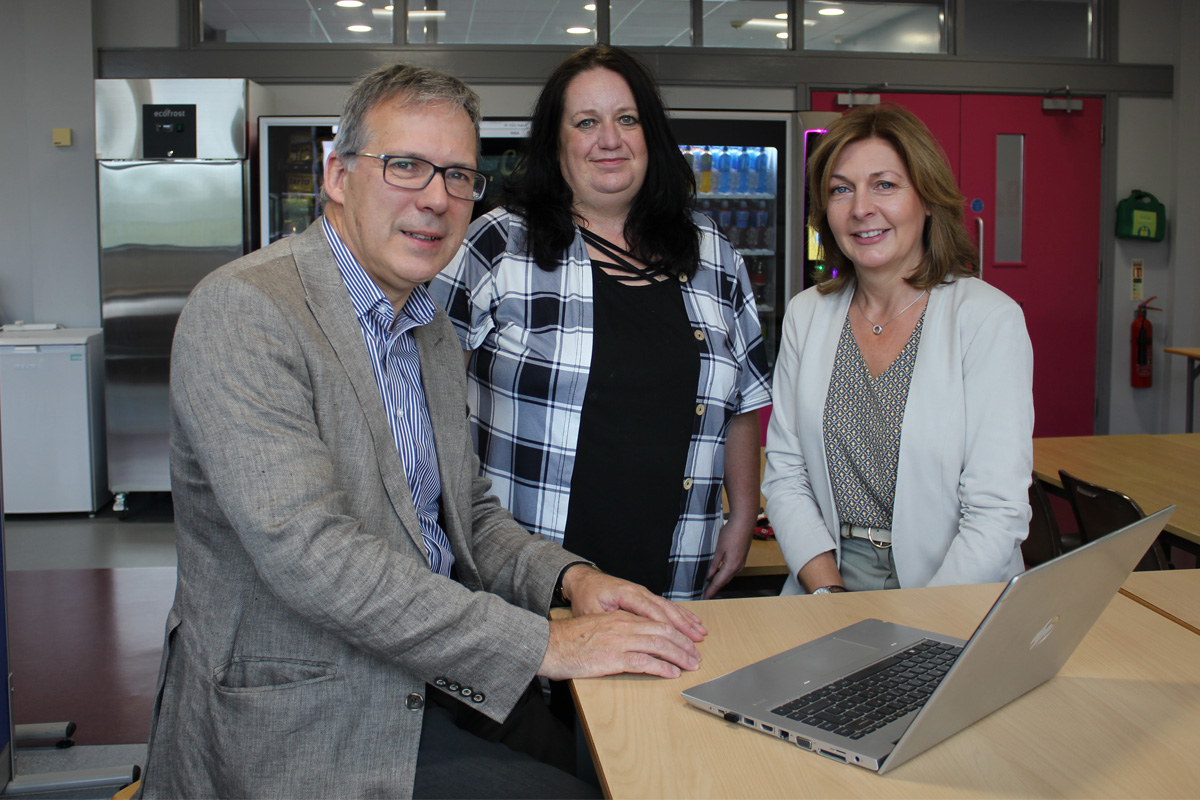Labour’s Opportunity Mission: Sector Response

Today (6th July) The Labour Party has Launched their Opportunity Mission. In this article, we have compiled the sector’s response to this launch.
Labour has set out five national missions that we will build our manifesto around and, if elected, drive everything they do in government.
Labour will be focussed on outcomes that matter: Making sure people are better off, live in safe communities, and have the opportunities they need to succeed – wherever they live, and whatever their background.
These missions will only be achieved through relentless focus. They require government departments working together. Business working with unions. The private sector working with the public sector. And a common partnership between national and local government.
Each mission is built on the strong foundations of economic stability, national security, and secure borders.
Labour’s fifth mission in government will be to break down the barriers to opportunity for every child, at every stage and shatter the class ceiling.
Unveiling Labour’s final mission to break down barriers to opportunity, Starmer announced his Labour government’s plans for a major expert-led review of the national curriculum to develop children’s knowledge and skills and prepare them for the jobs of the future.
The review will consider the curriculum from the beginning of primary through to the end of compulsory education.
Alongside maintaining a firm foundation in core subjects of reading, writing and maths, Starmer said the party would take immediate steps to encourage schools to support young people to take an arts or sports subject until 16.
Labour will also weave speaking skills into the curriculum and embed digital literacy and skills throughout children’s learning, to ensure every young person is ready for work and ready for life.
Subjects like music, art, sport or drama, that build confidence and skills such as communication, critical thinking, problem solving and teamwork, must be available to all our children not just some. These are skills employers value and which parents know help their children to achieve, while creative arts and sports subjects can also boost young people’s engagement in their education.
The review will be based on the following principles:
- An excellent foundation in core subjects of reading, writing, and maths.
- A broader curriculum, so that children don’t miss out on subjects such as music, art, sport and drama.
- A curriculum that ensures young people leave school ready for work and ready for life, building the knowledge, skills and attributes young people need to thrive. This includes embedding digital, oracy and life skills in their learning.
- A curriculum that reflects the issues and diversities of our society, ensuring every child is represented.
- An assessment system that captures the full strengths of every child and the breadth of curriculum, with the right balance of assessment methods whilst maintaining the important role of examinations.
The mission will include several measurable goals:
- To boost child development with half a million more children hitting the early learning goals by 2030
- To see a sustained rise in young people’s school outcomes over the next decade, and building young peoples’ life skills
- To expand high quality education, employment and training routes so more people than ever are on pathways with good prospects by 2035
Read Keir Starmer’s speech at Mid Kent College here.
Sector Response
Natalie Perera, Chief Executive at the Education Policy Institute, said:
“Labour has identified a number of important issues which need to be addressed in order to both improve outcomes and close the disadvantage gap. We particularly welcome the commitment to improve quality and accessibility in the early years. This chimes with EPI’s own research that around 40% of the disadvantage gap at age 16, is already present at age 5. Labour’s focus on language and communication is also essential for children’s early development.
“Further commitments to increase the number of teachers and improve retention through increased pay and targeted retention payments based on shortage subjects, geography, and levels of disadvantage are also welcome and something that EPI has been calling for.
“Other commitments including reviewing curriculum and assessment and reforming the role of Ofsted also appear to address significant concerns (many of which are reflected in our own data analysis) about the narrowing curriculum and the impact of the current inspection model.
“We also welcome the focus on pupils with Special Educational Needs throughout the opportunity mission. It is critical that these pupils are not just seen as an “afterthought”.
“It is also sensible to review the current Level 3 offer for 16-19 year olds, before taking decisions to scrap many qualifications. We do not, yet, have enough evidence about the impact of the T Level reforms, and so we welcome the commitment to take a more considered approach.
“Overall, Labour’s Opportunity Mission identifies and seeks to tackle some of the key challenges facing our education system, but there needs to be more detail on how some of these ambitions will be funded and delivered. The commitments to radically increase the number of qualified early years workers, teachers, health visitors and mental health support workers, for example, are laudable, but they need to be fully funded.
“Labour must also consider how it will tackle entrenched issues in our schools, such as rising absence rates and a growing disadvantage gap.”
Teach First CEO Russell Hobby said:
“We welcome Labour’s commitment to education at the heart of tackling poverty, particularly steps to attract more great teachers to work in the communities where they’re needed most and investment in the services around them.
“The cost of living is threatening too many childhoods, and we must invest in education to give every young person a chance to fulfil their potential and a stake in the future. Our ability to power up our economy is built on the shoulders of young people achieving their dreams and that only happens when we have a thriving community of teachers.”
Jane Harris, CEO of children’s charity, Speech and Language UK said:
“Helping all children to express themselves and communicate well is an admirable aim. We have to recognise just how far away we are from this ambition in the UK, with at least 1.7 million children currently struggling with the basics of talking and understanding words. We need to give nurseries, primary and secondary schools, the tools and training they need to turn this around as well as giving families better advice on how they can help.
‘Without these steps, this huge group of children are at risk of failing in English and Maths, developing mental health problems and becoming unemployed as adults. All political parties need to invest in the future of children with speech and language challenges to prevent harm to their lives, our future economy and society.”
Speech and Language UK said:
“There are currently more than 1.7 million children in the UK with challenges in talking and understanding words. Despite the previous covid recovery programme, the number of children without these basic skills is going up year on year. At Speech and Language UK, we are delighted that the Labour leader has recognised that schools need to do far more to change children’s futures. We want the Government to give schools and nurseries more tools and training and give families better advice and guidance to change children’s lives. We hope that future policies will focus on changing the futures of children with speech and language challenges as well as helping children to excel in communication. Otherwise, much of the covid generation’s future will look bleak.”
Sir Peter Lampl, Founder and Chairman of the Sutton Trust and Chairman of the Education Endowment Foundation, said:
“The launch of Labour’s Opportunity Mission today marks a welcome return of social mobility to the top of the agenda. Its policies show there has been consideration of how barriers can be removed to unlock talent, which would go a long way to improving young people’s life chances and sustaining economic growth. From improving early years, to strengthening teaching, developing oracy and other key life skills, reforming the skills system and banning unpaid internships – there is a whole lot to be welcomed.
“But while Labour are cautious on spending commitments, making this mission a reality will require substantial investment. In the run up to the election, we would like to see more meat on the bones, including commitments to equalise access to early years education, increase the supply of apprenticeships, increase schools funding and provide more financial support for low-income students.”
Damien Hirst said:
“Art is for everyone by everyone and not just for the rich by the rich. When I grew up in Leeds, I didn’t have any money. I had free school dinners, I had a good art teacher and luckily I managed to get a government grant to go to art school and Goldsmiths University which changed my life. Without it I wouldn’t be where I am today. I’m so happy that Keir Starmer and Labour are showing this initiative and recognising the importance of art and creativity for all young people across the curriculum.”
Sir Steve McQueen said:
“If we are talking about opportunity for young people, then the ability to express themselves imaginatively and creatively, and in their own way, is one of the greatest opportunities you could possibly give them. Culture and the arts are something this country is the best at and they need to be nurtured and protected.”
Caroline Norbury OBE, Chief Executive, Creative UK, said:
“Creative learning teaches cognitive and communication skills, the ability to think both critically and creatively, and the initiative and intuition to solve complex problems. Access to meaningful creative education must be universally available for all children. We welcome the policy proposals outlined in Labour’s Opportunity Mission, to ensure creative subjects are firmly embedded in the school curriculum at all stages of education.”
Hugh Milward, Vice President, External Affairs, Microsoft UK, said:
“These are exactly the kinds of proposals we need. We already live in a world where AI is accelerating human capabilities and our children will inherit a world transformed by it. Understanding how AI works and harnessing it to become a creator, not simply a user, must be a foundational part of every child’s learning in the UK.”
Stephen Kelly, Former Prime Minister’s Ambassador for Business & Technology, said:
“Digital skills are critical to the prosperity of Britain with technology jobs exploding from 2m to 5 million in the past decade. I applaud the commitment to transform Britain’s educational curriculum to equip the next generation with the digital skills to create a more productive, socially mobile, equal and vibrant society.”
Baroness Martha Lane-Fox, digital pioneer and entrepreneur, said:
“I welcome Labour’s plans to prepare young people for a digital future. The pace and scale of technological change is extraordinary right now, it’s vital that we equip young people with the Right skills to navigate what is going to be a complex future. The challenge is intensified by how unequal the landscape already is and how much worse it will become without government action.”
Professor Neil Mercer, Director, Oracy Cambridge, University of Cambridge, said:
“Teaching oracy skills in every school would significantly improve educational outcomes. The research evidence is there and we know how to teach spoken language skills. An astute educational policy, like this one proposed by Labour, would make this happen for all children.”
Margaret McCabe, CEO & Founder of Debate Mate, said:
“I know our greatest assets are our young people and their ideas. Since inception, I have worked with over 120,000 students, teachers and professionals across 50 countries, and, as we move toward generative artificial intelligence, the human skills that I teach have never been more important. I am excited to support Labour’s commitment to promoting communication or oracy to young people across the UK, which chimes with our longstanding vision to make these crucial skills available to everyone, everywhere.”
Paul Whiteman, general secretary at school leaders’ union NAHT, said:
“It is good to see Labour fleshing out their plans for education should they win the next election.
“There is much here that we would welcome, including the strong focus on recruitment and retention of teachers and leaders, better mental health and support services for young people, and a commitment to reform the current inspection regime. We also welcome the proposed curriculum and assessment review, and we stand ready to contribute to any such review.
“A renewed focus on a genuinely broad and balanced curriculum is something to welcome. There is no doubt we have seen a narrowing of the curriculum under the current government and school leaders will support a fresh approach.
“Many of these proposals have the potential to have a positive impact on schools if they are carefully implemented in collaboration with the profession. For too long, school leaders and teachers have felt that education policy has been done to them, rather than with them, and a change of approach would be extremely welcome.
“We cannot escape the fundamental truth that a world-class education system requires sufficient funding and resources. The cuts to school funding over the last decade have done serious damage and it’s crucial that the next government commits to increasing investment over the long-term.”
Sharon Davies, CEO of Young Enterprise said:
“Keir Starmer is right to stress that education needs to be about more than just academic achievement. However, the burden to bring about change cannot fall solely on teachers who are already under resourced and over stretched. The applied learning initiatives which Keir discussed must play an important role – especially internships, apprenticeships and project-based learning.
“Every young person should leave education equipped with real world skills which employers seek – such as problem-solving, critical thinking, communication and teamwork. Keir’s speech focused on oracy but numeracy and mathematics are also crucial, especially when used to support financial capability. Young Enterprise welcomes Keir’s emphasis on the importance of practical skills and vocational opportunities. They are key areas of our work, breaking down barriers and targeting support at those who have reduced access to opportunities.”
LTE Group CEO John Thornhill said:
“While the action pledged by Labour is welcome, it is vital that they commit to going even further when it comes to recruiting and retaining staff working in further education so that it becomes an attractive proposition for industry experts to come and work in.
“At the very least, this must include improving the pay of teachers working in further education, where the average salary is around £9,000 less than among teachers in schools. According to the Association of Colleges this will require an injection of an additional £400m into further education which could, in part, be achieved by providing the sector with the same VAT relief as is provided to schools.
“Making the sector an attractive place for industry professionals to work in will go along way towards visibly demonstrating to people that technical routes are as aspirational and as effective in unlocking career opportunities as academic routes as the evidence will be there in front of them in the classroom.
“For any political party that is serious about delivering economic prosperity, it is vital that they pledge the funding which will be required to attract skilled professionals into the further education sector so that it can develop the skilled workforce that is so desperately needed to drive economic growth.”
Muniya Barua, Deputy Chief Executive at BusinessLDN, said:
“Maximising all available talent is critical to get London’s economy growing at a time when businesses are facing chronic skills shortages.
“We welcome Labour’s plans to give businesses greater flexibility to invest in apprenticeship training for the jobs of the future, including through digital skills training. This will help to future proof our workforce in the face of rapidly accelerating technology.
“Labour’s proposals to reform the childcare system by working with local authorities to boost the number of childcare places and raise the standard of early years education are a step in the right direction. Yet with the average costs of childcare in London more than double some other regions, the capital’s businesses are looking for all political parties to be bolder on childcare, including looking at incentivising the private sector to provide more support to their employees.”
Vivienne Stern MBE, Chief Executive of Universities UK said:
“Universities and colleges are vital to the UK’s plans for growth and prosperity, so to see the Labour Party’s recognition of the excellence of UK universities, as well as their civic and social contributions, is heartening. We need to create the conditions for universities to thrive to maximise their positive impact on learners, the economy and wider society.
“We strongly support Labour’s vision of expanded access to lifelong learning. Universities have worked hard to improve participation for less advantaged students, and we are proud of the progress that has been made in opening up education to all.”
Dr Patrick Roach, General Secretary of NASUWT-The Teachers’ Union, said:
“It is vital that more than a quarter of century following Tony Blair’s momentous commitment to education, education, education, that parties at the next general election put our schools and colleges at the top of their priorities for government.
“Sir Keir Starmer has acknowledged that the education and children’s services workforce are key to securing Labour’s mission for education.
“Teachers will be looking to a future government that can demonstrate it understands the deep systemic challenges within the education system, and is committed to taking the action necessary to end the teacher recruitment and retention crisis.”
Anna Feuchtwang, Chief Executive of the National Children’s Bureau, said:
“Over four million children are living in poverty in this country and unless we can drastically improve this any set of education reforms will only go so far.
“To truly unlock opportunity for all children we also need to ensure comprehensive access to affordable childcare and early education, high-quality SEND provision, as well as investment in the wider services that many children rely on outside the school gates, like social care and mental health services.”











Responses